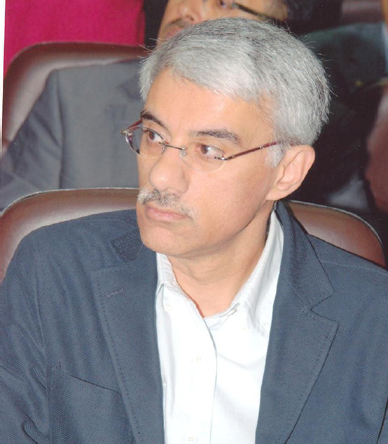There has been a great deal of discussion and speculation and some research among academics and practitioners alike about what role the new media, especially social media, are currently playing and what impact they will have in future social and political developments in the Arab world. This workshop will concentrate on social media use in the Gulf, but it welcomes contributions regarding more traditional media that may have had an impact on social media developments. Social media, like other forms of mass communication, originated in the West. It would be an exaggeration to suggest that each new media development was a “communication revolution.” However, several noteworthy developments preceded the introduction and use of social media in the Middle East. For example, the introduction of movable Arabic type played a role in the Arab Awakening; point-to-point, two-way radio communication made it possible for Saudi Arabia’s founder to stay in touch with leaders in his 2 increasingly large kingdom; Nasser’s Radio Cairo and the Voice of the Arabs helped spark political developments in the Arab world; television brought live pictures, news, and films to the unaware; video cassettes and DVDs essentially removed the control of entertainment from Middle East governments and gave it to individuals; direct-to-home satellite television not only contributed to the loss of government control over most electronic media, but also allowed the creation of new information formats – Al Jazeera is just one example. Finally, the introduction of the Internet and social media helped put individuals in charge of communication, especially in Gulf States where high disposable income among the young and old alike permits the acquisition of modern communication technology and associated essential high-speed broadband connections.
3 DAYS / 12 Workshops
MORE THAN 300 ACADEMIC PAPERS
The quest to learn how and under what circumstances those in the Gulf use social media
is elusive for several reasons. Historically, Gulf governments that controlled traditional
print and broadcast media had little interest in learning specifics about their audiences.
When Western international radio broadcasts were important, the BBC, Voice of
America, and Radio Monte Carlo Middle East, for example, did surveys to help craft
programming and to show their sponsoring governments the value of the broadcasts. For
the most part, these radio services are a thing of the past, replaced by many of the same
radio broadcasters with direct-to-home satellite services. With this there is increased
interest in pan-Arab television advertising; audience research is essential to let advertisers
know the size and demographics of those receiving paid messages. Thus, commercial
research firms are active in determining more audience information.
We believe this proposed workshop will attract research that reveals more about social
media and Internet usage in the Gulf States. Students, academics, government media
outlets, and commercial research firms will be attracted to present papers to this
workshop as a means of disseminating their findings. Some researchers and analysts
believe that social media usage has already had an impact on Gulf politics and society. In
her 2012 book On Saudi Arabia Karen E. House notes that “…thanks to satellite
television, the Internet, and social media, young people now are well aware of
government ineffectiveness and wealth inequities.” She further quotes a young Saudi man
in his mid-twenties who said, “Facebook opens the doors of our cages,” referring to
social media as the primary way women and men meet in the kingdom. A Financial
Times story about social media use in Saudi Arabia asserts that “Saudis are among the
most active social media users in the Middle East.”
A groundbreaking eight-country survey in late 2012 and early 2013 (that included Qatar,
Bahrain, the UAE, and Saudi Arabia) sponsored by Northwestern University’s program
in Qatar notes that “Facebook is by far the most popular social network in Arab countries
surveyed, with 94 percent of social network users active on the network. More than half
of social network users in the sample are active on Twitter, 46 percent employ Google+,
and around one in seven use Instagram.”
3
Dr. Yousef Al-Failakwi gave a presentation entitled “Are Social Media in Kuwait Really
Social?” at the 2012 meeting of the Broadcast Education Association. In his abstract he
noted that Forbes magazine offered a list of cities where the most Arab tweets took place;
thirty-eight percent of those were from Kuwaitis. Another research center indicated that
there are about 900,000 Facebook users in Kuwait, meaning that one-third of all Kuwaitis
are using Facebook.
The Dubai School of Government’s July 2012 report entitled “Social Media in the Arab
World: Influencing Societal and Cultural Change” provides a comprehensive review of
social media use in the Middle East. The document includes several charts reflecting
survey results. One chart notes that 75 percent of Saudis and 71 percent of Emiratis
believe that their contribution to society has increased through using social networking
tools.

